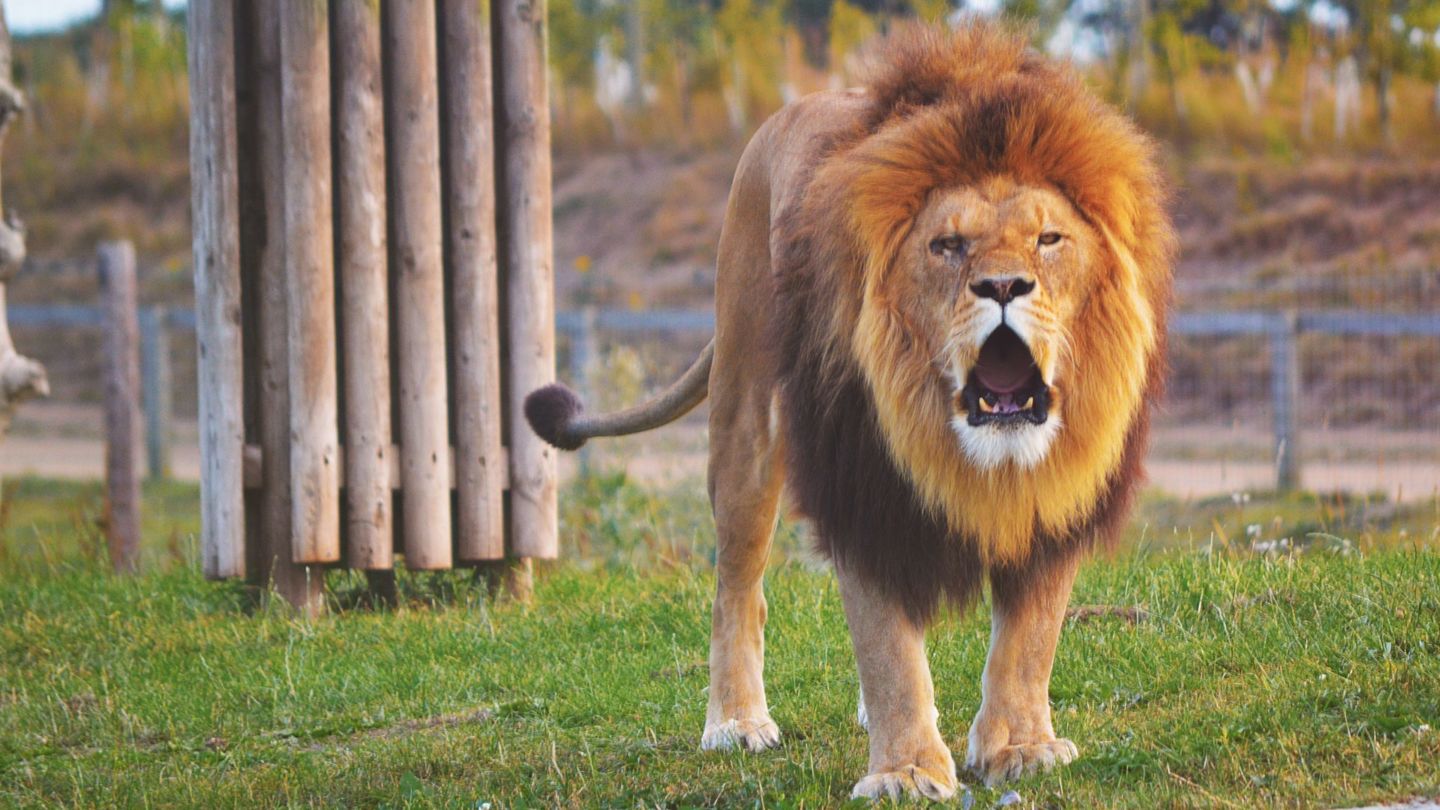The two lions which raised purrs of concern after they got loose to prowl Changi Airport were likely part of a thriving and completely legal trade of wildlife that takes place every day under our snouts.
Singapore Wildcat Action Group, which promotes wildcat conservation, believes the lions were likely en route after being bought and sold between private parties as part of a pervasive – and profitable – global trade.
“Wild animals as well as domestic animals are transported by airlines everyday,” the group’s codirector, Carmen Pang, told Coconuts today. Singapore Wildcat Action Group, or SWAG, did not have information specific to the lions which broke loose Sunday at the airport.
Singapore Airlines yesterday said the shipment was “legal” and “commercial” but has otherwise been tightlipped about the big cats, even after worrying photos emerged of one strapped to a crate surfaced. The African-originating animals are under veterinarian supervision at a Mandai facility operated by zoo owner Mandai Wildlife Group, which has said it only became involved at the airline’s behest.
The airline has refused to answer questions about their origins and destination, citing confidentiality.
The nonprofit said it was “concerned” about the wellbeing of the lions upon hearing the news but were relieved to learn Mandai Wildlife Group, a zoo and animal parks operator it trusts, was caring for the lions.
Lashing any animal, let alone lions, to cargo for transport is unacceptable, said the nonprofit.
“Being strapped on top of crates, as shown in the photo, cannot be the acceptable way to transport any animal, no matter wild or domestic, big or small,” Pang said in a message.
Asked about the legal trade, Singapore animal rescue group ACRES referred questions to government agency NParks. It did say the treatment and handling of the animal seen in the leaked photos were not normal.
SWAG thinks the lion was tranquilized and collapsed while it was atop the crate. The staff may have then lashed it beneath safety netting to transport it to Mandai’s facility. The airline has declined to explain how the animals were handled before and after their escape.
While SIA said its live animal transport services comply with International Air Transport Association regulations to ensure animal welfare and safety, the cat advocacy group thinks those guidelines are “loose” and “not well-defined.” They think this could have contributed to the lions escaping possibly faulty cages.
“Airlines employees at flight origins are ultimately responsible for accepting animals shipped,” Pang said. “In this case, the lions came from an origin station that’s outside of Singapore, and two escaped while in transit here,” Pang wrote.
“This is sadly likely a result of an error in the cage’s design and/or handling during the onloading and/or offloading and onloading of the cage/crate at the origin or in Singapore.”
‘Big business’
While illegal wildlife trade is rampant in Asia, it goes on legally as well. Though it may be a fine distinction, the legal trade is “big business” involving zoos and commercial wildlife operators around the world. SWAG noted that zoos list lions on exchanges such as the Association of Zoos and Aquariums and Goatrade Farming they have bred in captivity.
Besides those zoos and parks subject to government regulations, there are also private buyers purchasing animals from overseas breeders. As anyone who has watched Tiger King would understand, this is prevalent in the United States, where there are more captive tigers than living in the wild, Pang said.
Then there are those captivity-bred animals that are sold to facilities to conduct animal testing for consumer products and medicine.
All imports and exports of wildlife in Singapore are regulated by animal authorities with permits under the conditions of the Convention on International Trade in Endangered Species of Wild Fauna and Flora, or CITES.
In short, while a lot of attention is steered toward the seamy world of illegal trafficking, a whole lot of animals are being bought and sold with a lot of money made along the way.
The group stands by keeping wildlife in the wild and not “treated like commodities” where they are traded and transported out of sight except for when they break free at a random airport.
Other stories you should check out:
Changi Airport worker tests positive for Omicron, 24 cases counted so far
Flaming bus chokes Mandai with thick black smoke (Video)
Escaped Changi lions were on ‘legal, commercial shipment:’ SIA





Reader Interactions